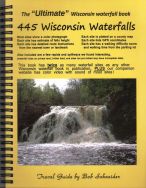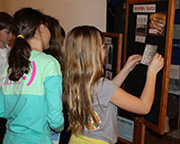
|
News at MCLHR
April 25 History Program: "Shop Talk: History & Memories of the Milwaukee Road Shops in Tomah" The Monroe County Local History Room & Museum presents: “Shop Talk: History & Memories of the Milwaukee Road Shops in Tomah,” a public program to be held on Thursday, April 25th at 7pm at the Sparta United Methodist Church... Click here for more
History Room closed Jan. 16-22. Reopens Jan. 23.
|
History DetectivesTitle: "History Detectives"
Goals:
Social Studies Performance Standards Related to the Program By the end of Grade 8 B.8.1 Interpret the past using a variety of sources, such as biographies, diaries, journals, artifacts, eyewitness interviews, and other primary source materials, and evaluate the credibility of sources used B.8.4 Explain how and why events may be interpreted differently depending upon the perspectives of participants, witnesses, reporters, and historians Common Core State Standards for Literacy in All Subjects (6-12) Related to the Program Grades 6-8 RH.6-8.1 Cite specific textual evidence to support analysis of primary and secondary sources. RH.6-8.2 Determine the central ideas or information of a primary or secondary source; provide an accurate summary of the source distinct from prior knowledge or opinions. RH.6-8.4 Determine the meaning of words and phrases as they are used in a text, including vocabulary specific to domains related to history/social studies. RH.6-8.7 Integrate visual information (e.g. charts, graphs, photographs, videos, or maps) with other information in print and digital texts. RH.6-8.8 Distinguish among fact, opinion, and reasoned judgment in a text. RH.6-8.9 Analyze the relationship between a primary and secondary source on the same topic. SL.6.1.b Follow rules for collegial discussions, set specific goals and deadlines, and define individual roles as needed. SL.6.1.c. Pose and respond to specific questions with elaboration and detail by making comments that contribute to the topic, text, or issue under discussion.
|
||
200 W. Main St., Sparta, WI 54656 | Phone: (608) 269-8680 | Email: MCLHR@centurytel.net | Visit Us On Facebook
Website development by Webteam, Inc.

